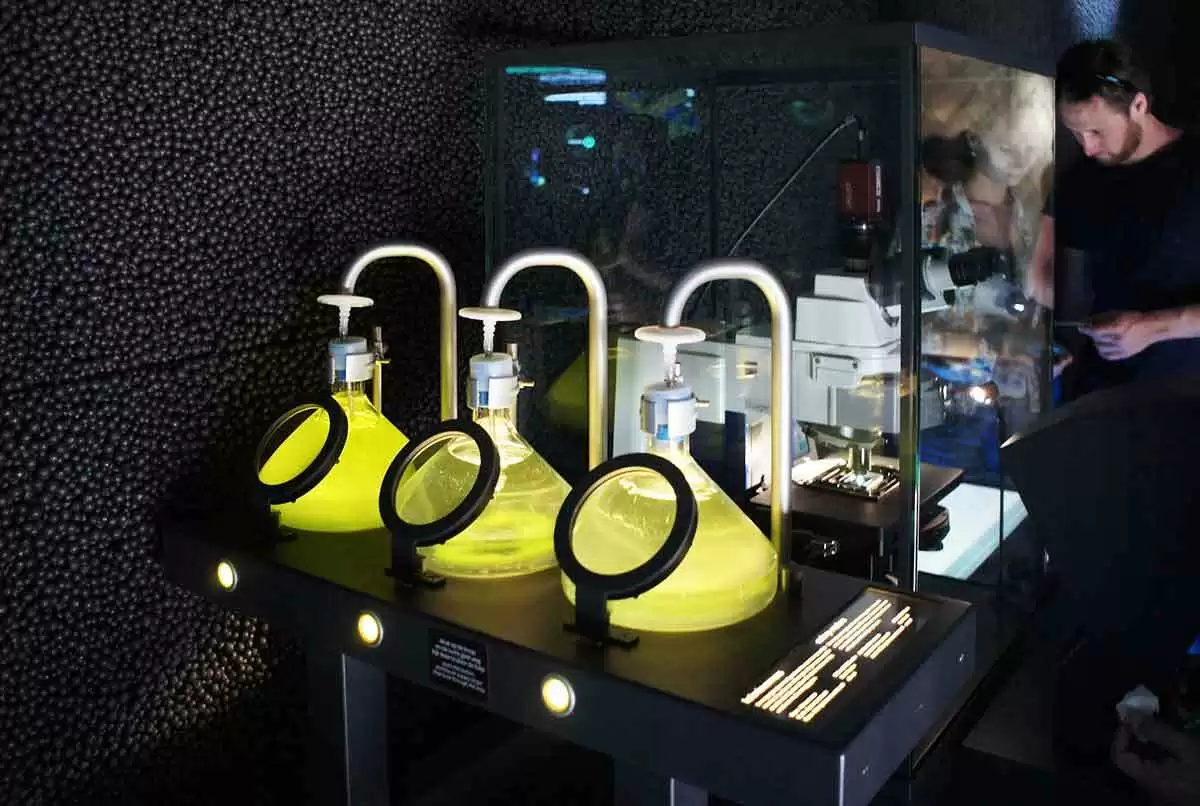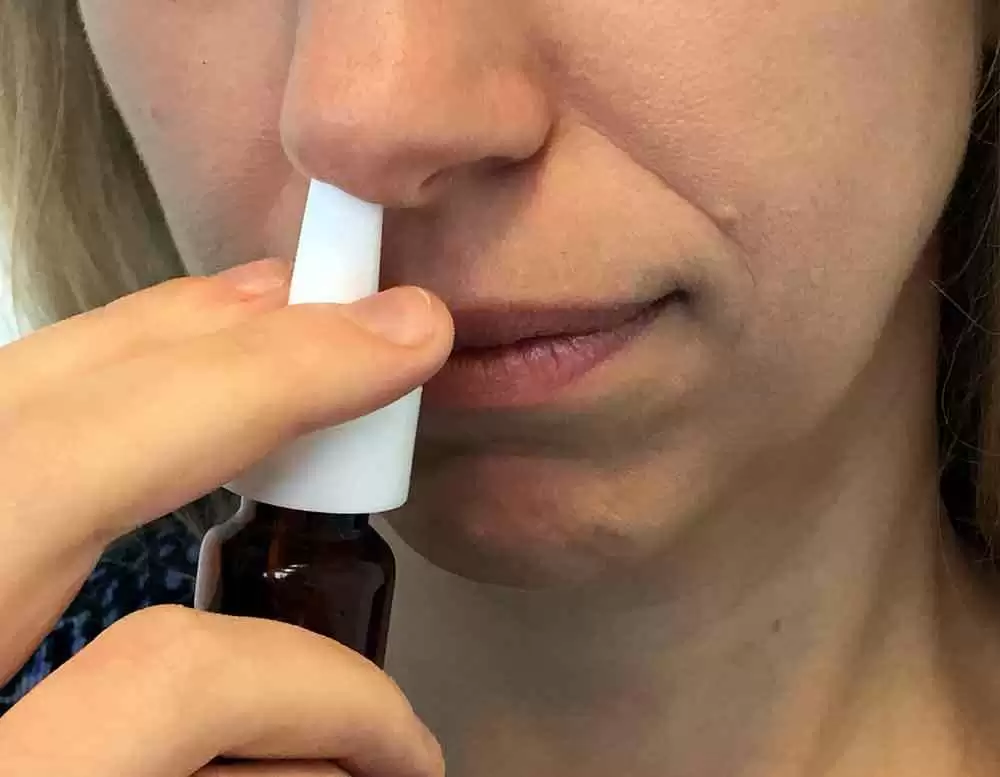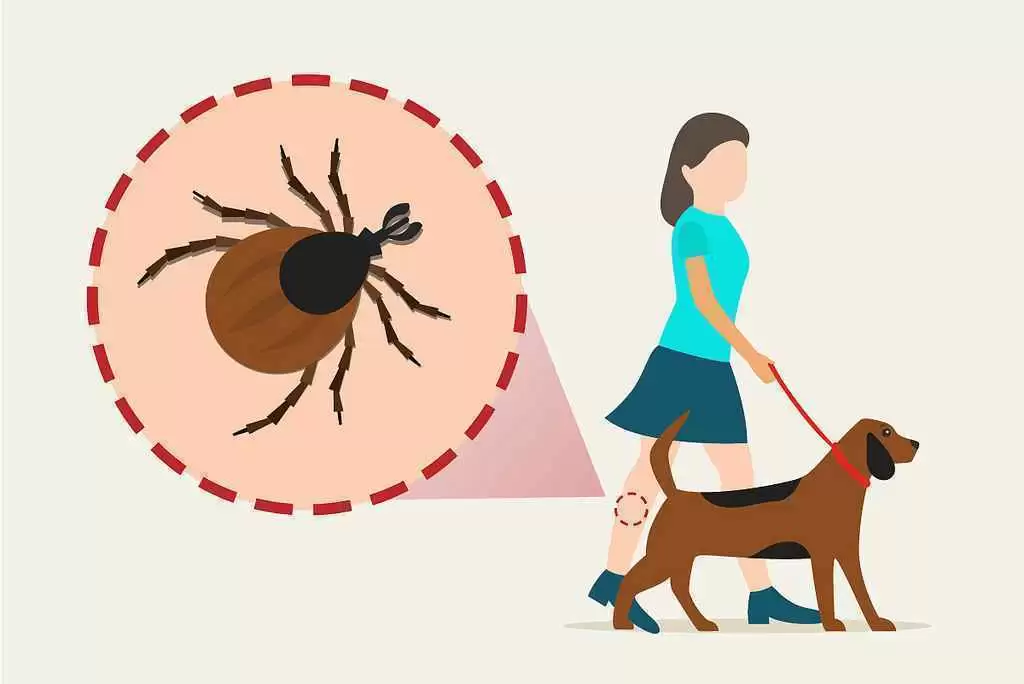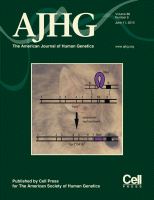-
Welcome to Celiac.com!
You have found your celiac tribe! Join us and ask questions in our forum, share your story, and connect with others.
-
Celiac.com Sponsor (A1):
Celiac.com Sponsor (A1-M):
-
Get Celiac.com Updates:Support Celiac.com!
Search the Community
Showing results for tags 'infection'.
-
Celiac.com 08/29/2022 - Rotavirus infection is a potential trigger for autoimmune diseases, and some studies have shown associations between rotavirus vaccination and autoimmune conditions, such as type 1 diabetes. There have also been a number of studies that show an association between celiac disease and childhood or infant rotavirus infection. But is there any association between the rotavirus vaccine and rates of celiac disease? A team of researchers recently set out to examine the association between rotavirus vaccination and celiac disease and autoimmune thyroiditis, both of which are associated with type 1 diabetes. The research team included Catherine Kim, Zhe Yin, Neil Kamdar & Grace J. Lee. They are variously affiliated with the Departments of Medicine, Obstetrics & Gynecology and Epidemiology, University of Michigan, Ann Arbor, MI, USA; the Institute for Health Policy and Innovation, University of Michigan, Ann Arbor, MI; and the Department of Pediatrics at the University of Michigan, Ann Arbor, MI. The team's retrospective cohort study used de-identified claims data to include more than 2.1 million eligible infants who were born between 2001 and 2018, and continuously enrolled from birth for at least 365 days. Nearly thirty percent of infants were born prior to the introduction of rotavirus vaccine in 2006; thirty-two percent were eligible for the vaccine, but were not vaccinated; nearly ten percent received partial vaccination; while nearly thirty percent received full vaccination. The team found 1,000 cases of autoimmune thyroiditis, and nearly 1,400 cases of celiac disease. Compared to unvaccinated children born after 2006, children who were born prior to the introduction of rotavirus vaccine in 2006 had lower risk of celiac disease. However, the risk for children who were partially vaccinated or fully vaccinated was similar to the unvaccinated children. Risk of autoimmune thyroiditis also corresponded to vaccination status. Based on the data, the team concludes that rotavirus vaccination has no effect on risk for celiac disease or autoimmune thyroiditis. Hopefully, this will alleviate any concerns about celiac disease or autoimmune thyroiditis and the rotavirus vaccine, and help parents to make informed decisions about vaccinating infants against rotavirus. Read more in Scientific Reports volume 12, Article number: 12941 (2022).
-
- celiac disease
- infection
-
(and 4 more)
Tagged with:
-
Celiac.com 04/28/2022 - Some studies have indicated that celiac disease patients may not fully respond to hepatitis B virus (HBV) vaccination, and may therefore be at greater risk of developing HBV infection. However, the data are far from conclusive. Also, there's not been much study on the risk of HBV infection in celiac disease patients. To get a clearer picture of the issue, a team of researchers recently set out to assess the response to hepatitis B virus (HBV) vaccination and the risk of HBV infection in celiac disease patients. The research team included Nawras Habash; Rok Seon Choung; Robert M Jacobson; Joseph A. Murray; and Imad Absah. They are variously affiliated with the Division of Pediatric Gastroenterology and Hepatology; the Division of Community Pediatric and Adolescent Medicine, Division of Pediatric Infectious Diseases; the Division of Gastroenterology and Hepatology, Mayo Clinic, Rochester, MN. For their cross-sectional study, the team used data from the National Health and Nutrition Examination Survey (NHANES) database, from 2009–2014, to assess the rate of HBV vaccination, immune response, and HBV infection risk in patients with and without celiac disease. The team calculated the rate of HBV infection via retrospective analysis of two groups of patients. The first visited the Mayo Clinic from 1998–2021, while the second was a stable longitudinally observed cohort, the Rochester Epidemiology Project (REP), from 2010–2020. Based on the NHANES data, the rate of HBV infection in the United States was 0.33%. Of 93 patients with celiac disease, 46 (49%) were vaccinated for HBV and of the remaining 19,422 without celiac disease, 10,228 (53%) were vaccinated. Twenty-two (48%) vaccinated patients with celiac disease had HBV immunity, while 4,405 (43.07%) of vaccinated patients without celiac disease had HBV immunity, which was not significantly different. NHANES data showed no cases of HBV infection in celiac patients. During the study period, the team found just over 3,500 patients with celiac disease who were seen at Mayo Clinic, and nearly four thousand patients with celiac disease in the REP database. Of those patients with celiac disease, only four (0.11%) at Mayo Clinic and nine (0.23%) of the REP patients had HBV infection. These data show that the rate of HBV vaccination and immunity was similar for individuals with and without celiac disease. Overall, they showed no greater risk of HBV infection for celiac disease patients. Based on these results, HBV screening and HBV revaccination to increase immunity is not required for people with celiac disease. Read more in the Journal of Pediatric Gastroenterology and Nutrition: March 2022 - Volume 74 - Issue 3 - p 328-332
-
- celiac disease
- hepatitis b
-
(and 4 more)
Tagged with:
-

Bioengineered Probiotic Could Prevent Listeria Infections
Scott Adams posted an article in Latest Research
Celiac.com 08/25/2021 - For people who are old, pregnant, or suffering from compromised immune systems, listeriosis is a serious food-borne illness that is fatal for about 20 percent of patients, even with antibiotic treatment. Now, Purdue University’s Arun Bhunia, a professor of food science, and postdoctoral researcher Rishi Drolia have created a new probiotic that could prevent infections in high-risk patients, and help make potentially deadly listeria infections a thing of the past. Their technology uses a bioengineered version of Lactobacillus, a bacterium common in the human gut, to block the pathway the Listeria monocytogenes bacteria use to cross intestinal wall cells into the bloodstream. Their special Lactobacillus bacteria "seeks out the same proteins as Listeria monocytogenes in the gut," says Bhunia, before attaching, and blocking the pathway for Listeria. According to Bhunia, “This could be included in probiotic yogurts, capsules or gummies and used as a preventive measure to treat people who are at high risk of infection.” When the team's special Lactobacillus probiotic was introduced to human gut cells and in mice, it easily colonized the intestine and attached to epithelial cells. Pathogenic Listeria was subsequently unable to attach to those gut cells and reach the bloodstream. This prevented infection in these patients. This study provides the first successful use of engineered probiotic strains to outcompete and reduce pathogen growth by binding to the receptor adhesion sites. The team's approach provides a pathway for the use of bioengineered probiotic bacteria to potentially treat numerous conditions, including other gut illnesses such as celiac disease or inflammatory bowel disease, without raising serious health or regulatory concerns, say the authors. “We’ve seen evidence that the same proteins Listeria adheres to are overactive in these other illnesses,” Drolia said. “The probiotic has an anti-inflammatory effect and colonizes the gut for a week or more at a time. We’re interested in seeing how this could improve the lives of patients suffering from a variety of gut-related illnesses.” Bhunia has filed for a patent on the bioengineered Lactobacillus probiotic and foresees licensing the technology. Successful engineering of bacteria could see the technology expanded to fight other food-borne illnesses. The team is interested in applying this model to other pathogenic bacteria such as E. coli or Salmonella Read more in the Monticello Herald Journal-
- infection
- lactobacillus
-
(and 3 more)
Tagged with:
-
Celiac.com 03/30/2015 - Researchers are calling for an overhaul of cleaning and decontamination procedures in the face of a study showing that three out of 20 flexible gastrointestinal (GI) endoscopes (15%) pose an infection risk, because they are contaminated with unacceptable levels of human biological matter. The researchers are part of the 3M Infection Prevention Division, which recently conducted an assessment of endoscopes at five major hospitals. For their study, the researchers analyzed 275 flexible duodenoscopes, gastroscopes, and colonoscopes and found that 30 percent, 24 percent, and 3 percent respectively harbored unacceptable levels of human biological matter. The results surprised the team, as 15% constitutes an "unexpectedly high number of endoscopes failing a cleanliness criterion," says Marco Bommarito, PhD, lead investigator and lead research specialist, 3M Infection Prevention Division; adding that, ideally, no endoscopes would fail a cleanliness rating. Because such endoscopes are used for routine screening, and are reused on different patients, sterilization is crucial to preventing infection. The 3M team presented their findings in an abstract at the 40th Annual Conference of the Association for Professionals in Infection Control and Epidemiology (APIC). According to the Centers for Disease Control and Prevention’s 2008 guidelines for cleaning endoscopes, contaminated endoscopes are linked to more healthcare-associated outbreaks than to any other medical device. Even so, illnesses and reports of improperly cleaned endoscopes are on the rise at healthcare facilities across the country. In the face of their findings, the researchers concluded that "cleaning protocols for flexible endoscopes need improvement, such as guidelines tailored to the type of scope or identifying if there is a critical step missing in the manual cleaning process, and documented quality control measures." Source: Infectioncontroltoday.com
- 1 comment
-
- contaminated
- endoscopes
-
(and 3 more)
Tagged with:
-
Celiac.com 02/23/2021 - People with celiac disease face a higher risk for developing pneumococcal pneumonia, and certain types of viral infections. Because of this, many people with celiac disease have wondered if they may have a higher risk of developing Covid-19, or of developing complications or severe Covid-19-related outcomes, if they do get it. The question was serious enough for a team of researchers to take a close look at the data to see whether people with celiac disease face an increased risk of hospitalization for Covid-19, intensive care unit admission, and/or death from Covid-19. The research team included Benjamin Lebwohl, Emma Larsson, Jonas Söderling, Bjorn Roelstraete, Joseph A Murray, Peter HR Green, and Jonas F Ludvigsson. They are variously affiliated with the Celiac Disease Center, Department of Medicine, Columbia University Medical Center, New York, NY, USA; the Department of Epidemiology, Mailman School of Public Health, Columbia University, New York, NY, USA; the Department of Physiology and Pharmacology, Karolinska Institute, Stockholm, Sweden; the Department of Medical Epidemiology and Biostatistics, Karolinska Institute, Stockholm, Sweden; the Department of Gastroenterology and Hepatology, Mayo Clinic, Rochester, MN, USA; and the Department of Pediatrics, Örebro University Hospital, Örebro University, Örebro, Sweden. To get the answers they needed, the team put together a population-based group study from data gathered by 28 Swedish pathology departments from 1969-2017. They first identified nearly 41,000 patients with celiac disease, defined as small intestinal villus atrophy, who were still alive on February 1, 2020. They then compared data for these patients against data for nearly 184,000 controls matched by sex, age, county, and calendar period. Using Cox proportional hazards with follow-up through July 31, 2020, they first assessed risk of hospital admission with a primary diagnosis of laboratory-confirmed Covid-19. They then assessed risk of a Covid-19 admission to intensive care unit and/or death attributed to Covid-19. They found that the overall risk of hospital admission for Covid-19 was 2.9 and 2.2 per 1000 person-years respectively. After adjusting for comorbidities, they found no significantly higher risk of hospitalization for Covid-19, or of severe Covid-19, among celiac patients. Lastly, they saw no significant difference in mortality between celiac patients and control subjects who were hospitalized with Covid-19. From this data, the team concludes that people with celiac disease are not at higher risk of hospitalization for Covid-19, or for Covid-19- related intensive care admission and/or death. Read more at DovePress.com
-
- admission
- celiac disease
- (and 8 more)
-

What's the Connection Between Microbes and Celiac Disease Risk?
Scott Adams posted an article in Latest Research
Celiac.com 01/27/2021 - Most folks with celiac disease know that it's an immune-mediated intestinal disease marked by lifelong intolerance to dietary gluten in people with certain genetic types. Researchers have long suspected that microbial infections or bacterial microbiota could be part of the trigger for celiac disease development, but there haven't been many good, focused studies on the subject. A research team recently set out to assess microbial exposure and its impact on the risk of celiac disease development. The research team included Ketil Størdal; Christian Kahrs; German Tapia; Daniel Agardh; Kalle Kurppa; and Lars C. Stene. They are variously affiliated with the Pediatric Research Institute at the Faculty of Medicine, University of Oslo in Oslo, Norway; the Department of Chronic Diseases and Ageing at the Norwegian Institute of Public Health, Oslo, Norway; the Department of Pediatrics, Østfold Hospital Trust, Grålum, Norway; he Lund University Hospital, Lund, Sweden; the Center for Child Health Research, Tampere University and Department of Pediatrics, Tampere University Hospital, Tampere, Finland; and the University Consortium of Seinäjoki and Department of Pediatrics, Seinäjoki Central Hospital in Seinäjoki, Finland The team found 135 relevant studies, but most were cross-sectional, and subject to reverse causation and other biases. While there were a few prospective studies, the team's review emphasized group and longitudinal studies that have obtained biological samples prior to celiac disease onset. They found that easy childhood infections correlated with an increased risk of subsequent celiac disease in nine studies, whereas maternal infections during pregnancy did not show a clear association. The team found some links with the most frequently studied microbes, including four out of 16 studies Helicobacter pylori in four out of 16 studies, adenovirus in two out of nine studies, and enterovirus in two out of six studies. Rotavirus infections have been tied to celiac development, and rotavirus vaccination may reduce the celiac disease risk. However, among the many studies of gut microbiota, most were cross-sectional, and potentially influenced by reverse causation. The team found just two smaller prospective case-control studies with sampling before disease onset, and noted inconclusive findings regarding the fecal microbiome. This study potentially links a number of different microbes celiac disease. Since microbial factors can be addressed with available treatments, the team is calling for larger prospective studies to better understand the links between microbe exposure and celiac disease, along with potential preventative treatment options. Read more in Aliment Pharmacol Ther. 2020;53(1):43-62.-
- celiac
- celiac disease
-
(and 5 more)
Tagged with:
-
Celiac.com 03/09/2020 - Celiac disease is an autoimmune disorder triggered by sensitivity to gluten-containing grains in genetically susceptible people. Nasal mucociliary clearance is the most important factor protecting the upper and lower airways from foreign matter. Slow clearance times might leave patients at risk of infection. A team of researchers recently set out to investigate the effect of celiac disease on the clearance of nasal mucocous. The research team included Atakan Comba and Doğan Atan. They are variously affiliated with the Department of Pediatrics and the Department of Otolaryngology in the Faculty of Medicine at Hitit University, Çorum, Turkey. The team looked at both patients with celiac disease and healthy children. They measured nasal mucociliary clearance time using the saccharin taste time in seconds. Their study included forty-three patients with celiac disease and 22 healthy children. Forty-two of the children were female, and the study group ranged from about eight to fifteen years of age. Patients with celiac disease showed significantly slower nasal mucociliary clearance time compared to healthy children. This means it took much longer for kids with celiac disease to properly clear their airways of mucous, which makes them much more likely to get a respiratory infection than kids without celiac disease. The team saw no connection between prolonged mucosal clearance in celiac patients, and patient age at diagnosis, type of celiac disease, Marsh stage, or compliance with the gluten-free diet. Producing and clearing nasal mucous is the main way the body keeps foreign particles out of the upper airways and lungs. Poor clearance of nasal mucous increases the risk of infection and inflammation in small airways. The team found that clearance of nasal mucous takes longer in celiac patients. Compared with healthy non-celiacs, patients with celiac disease show high rates of respiratory tract infection, which is connected to malnutrition, vitamin deficiency, and hyposplenism. These higher rates of infection are independent of clinical features of patients with celiac disease and the gluten-free diet treatment. Read more in the International Journal of Pediatric Otorhinolaryngology
- 1 comment
-
- celiac disease
- clearance
-
(and 5 more)
Tagged with:
-
Celiac.com 12/26/2019 - Earlier studies have suggested a relationship between infection, associated antibiotic exposure, and the risk of celiac disease. However, there hasn't been a comprehensive evaluation of those studies that might help to deliver a clear answer. To address this, a team of researchers recently conducted a meta-analysis to investigate the relationship between infection, associated antibiotic exposure, and celiac disease risk. They began looking for relevant studies by searching the PubMed, Embase, and Cochrane databases for articles published through April 2019. They used random effects models to determine overall pooled estimates and 95% confidence intervals (CIs). Their meta-analysis contained 19 observational studies, including 15 on infection and six on antibiotic exposure. They found that any infection was associated with an increased risk of celiac disease later in life. The heterogeneity among studies was high enough to put the I2 at 94%. An analysis of subgroups indicates that celiac risk is independent of infection type, timing of exposure, or site of infection. Antibiotic exposure was also associated with new celiac disease cases. These results provide strong evidence that early infection and/or antibiotic exposure increase the odds of developing celiac disease, and suggest that disruption of intestinal immune processes or gut microbiota may play a role in celiac disease development. These findings could eventually influence clinical treatment and help to prevent celiac disease. Certainly, the rise of antibiotic use to treat infections mirrors the rise in cases of celiac disease over the last six or seven of decades. However, further study is needed to fully eliminate non-causal explanations for these connections. That is, they haven't fully discounted the possibility that there is another cause for the connection. Stay tuned for more developments on this and related stories. Read more at: wiley.com The research team included Hai-yin Jiang, Xue Zhang, Yuan-yue Zhou, Chun-min Jiang, and Yu-dan Shi. They are variously affiliated with the Collaborative Innovation Center for Diagnosis and Treatment of Infectious Diseases, State Key Laboratory for Diagnosis and Treatment of Infectious Diseases, The First Affiliated Hospital, School of Medicine, Zhejiang University, the Department of Child Psychiatry, Hangzhou Seventh People’s Hospital, Department of Pediatrics, The Affiliated Hangzhou First People’s Hospital, Zhejiang University School of Medicine, Hangzhou and Department of Chinese Internal Medicine, Taizhou First People’s Hospital, Taizhou, China.
- 4 comments
-
- antibiotic
- association
-
(and 4 more)
Tagged with:
-
Celiac.com 08/01/2019 - Rates of celiac disease have climbed steeply in recent decades in some developed countries. However, there really isn't much in the current medical literature to clearly explain the increase. Researchers Seth Scott Bittker and Kathleen Roberta Bell recently set out to determine whether nine variables are associated with the development of celiac disease in children. They are variously affiliated with the Interdisciplinary Center for Innovative Theory and Empirics (INCITE), Columbia University, New York, New York, US; and the Ontario College of Teachers, Toronto, Ontario, Canada. The team looked at the following variables: "incidence of ear infection before 2 years old, courses of antibiotics before 2 years old, duration of breastfeeding, vitamin D drop exposure in infancy, vitamin D supplement exposure between 2–3 years old, age at gluten introduction into the diet, fat content of cow’s milk consumed between 2–3 years old, quantity of cow’s milk consumed between 2–3 years old, and type of water consumed at 2 years old." To gather their data, the team used an internet survey to quiz parents living in the US with at least one biological child between 3 and 12 years old. To recruit participants, the team used social media, websites, electronic newsletters, and advertisements. The team ended up with a total of 332 responses for children with celiac disease, and 241 responses from the non-celiac control group. The team's data showed that skim liquid cow’s milk consumed between 2–3 years old, vitamin D drops used for longer than 3 months, early doses of antibiotics, and early ear infection are all associated with later development of celiac disease in children. This study found a connection between skim milk consumption, and vitamin D drop use for more than 3 months, and later development of celiac disease. It also found evidence to support earlier data that early life exposure to antibiotics and early life infection, especially ear infection, are also associated with the development of celiac disease in children. Read more in Clinical and Experimental Gastroenterology
- 5 comments
-
- antibiotic
- celiac
-
(and 8 more)
Tagged with:
-

Helicobacter Pylori Infection in Celiac Disease Patients
Scott Adams posted an article in Latest Research
Celiac.com 03/26/2007 - In is known that increased duodenal intraepithelial lymphocytes (IEL) are more common in celiac patients with Helicobacter pylori gastritis (H. pylori) than in those celiacs without Helicobacter pylori. It is also known that the elimination of Helicobacter pylori can reverse this problem. The study was motivated by the following two hypotheses: Celiac patients with Helicobacter pylori might present different clinicopathological profiles from those celiacs without H.pylori. Celiac patients with Helicobacter pylori might show different histopathological responses to a gluten-free diet than those celiacs without H.pylori. The research team compared the duodenal and gastric biopsies of 80 adults who had histologically and serologically confirmed celiac disease. The biopsies were taken both before and after patients had adhered to a gluten-free diet for 12 to 18 months. The team classified and scored gastritis using the Updated Sydney System. They classified duodenal biopsies using both the Marsh-Oberhuber and a simplified classification developed by the team. Three test subjects who were positive for Helicobacter pylori, and 12 who were negative (a total of 15 test subjects), presented with lymphocytic gastritis. Overall, a greater proportion of Helicobacter pylori-negative patients had severe villous atrophy (p Regardless of their initial Helicobacter pylori status, all subjects showed marked improvement of duodenal aspects following a gluten-free diet (p With the exception of the intraepithelial lymphocytes (IEL), which returned to normal in two Helicobacter pylori-positive patients, and in ten Helicobacter pylori-positive patients, gastric variables remained unchanged. The study concludes that Helicobacter pylori gastritis is not related to the clinical features of celiac disease, and that a gluten-free diet is equally effective for both groups. The study also notes that the inflammatory and structural changes to the mucosal architecture that are associated with celiac disease might eclipse some of the signs of lymphocytosis induced by Helicobacter pylori gastric infection. The study also further documents the pathogenic connections between celiac disease and lymphocytic gastritis. Am J Gastroenterol. 2006;101(8):1880-1885.- 2 comments
-
- celiac
- celiac disease
-
(and 5 more)
Tagged with:
-
Celiac.com 01/29/2018 - Researchers suspect that certain environmental factors, including infectious agents, might play a role in making celiac disease more prevalent and more widespread. Researchers in the USA and Sweden studying regional variation in the frequency of celiac disease have found similarities in the geographic distribution of Lyme disease, an emerging multisystemic infection caused by Borrelia burgdorferi spirochete, which invites questions about a possible connection with celiac disease. One research team recently set out to determine if infection with Borrelia contributes to an increased risk of celiac disease. The research team included Armin Alaedini, Benjamin Lebwohl, Gary P. Wormser, Peter H. Green, and Jonas F. Ludvigsson. They are variously affiliated with the Department of Medicine, Columbia University Medical Center, New York, NY USA; the Celiac Disease Center, Columbia University Medical Center, New York, NY USA; the Institute of Human Nutrition, Columbia University Medical Center, New York, NY USA; the Department of Medical Epidemiology and Biostatistics, Karolinska Institutet, Stockholm, Sweden; the Division of Infectious Diseases, Department of Medicine, New York Medical College, Valhalla, NY USA; the Department of Pediatrics, Örebro University Hospital, Örebro, Sweden; and with the Division of Epidemiology and Public Health, School of Medicine, University of Nottingham, Nottingham, UK. Using biopsy reports, the team identified 15,769 individuals with celiac disease. By linking to the nationwide Patient Register, they were able to compare the rate of earlier occurrence of Lyme disease in the patients with celiac disease to that in 78,331 matched controls. To further assess the temporal relationship between Borrelia infection and celiac disease, they also examined the risk of subsequent Lyme disease in patients with a diagnosis of celiac disease. The team found that twenty-five patients with celiac disease had a prior diagnosis of Lyme disease (0.16%), whereas 79 had a subsequent diagnosis of Lyme disease (0.5%). This showed a modest association between Lyme disease and celiac disease was seen both before and after celiac diagnosis, with celiac risk being highest in the first year of follow-up. So, only a small portion of the celiac disease patients had a prior diagnosis for Lyme disease. The research team asserts that the supposed association between Lyme disease and celiac disease, both before and after the diagnosis of celiac disease, is likely driven by surveillance bias, at least in part. These data show that patients with Borrelia infection do not face a substantially higher risk for developing celiac disease. Source: BMC Med. 2017; 15: 169. doi: 10.1186/s12916-017-0926-1. PMCID: PMC5599869
-
- celiac
- celiac disease
-
(and 7 more)
Tagged with:
-
Celiac.com 01/17/2018 - People with celiac disease face a higher risk of infections like tuberculosis, influenza, and pneumococcal pneumonia, but researchers don't know how this might apply to risk of Clostridium difficile infection in those patients. A team of researchers recently set out to identify celiac disease patients using biopsy data from all pathology departments in Sweden over the 39-year period covering July 1969 through February 2008. They compared the risk of Clostridium difficile infection, based on stratified Cox proportional hazards models, among patients with celiac disease versus a control group of patients without celiac disease--matched by age, sex, and calendar period. The research team included Benjamin Lebwohl MD, MS, Yael R Nobel MD, Peter H R Green MD, Martin J Blaser MD, and Jonas F Ludvigsson MD, PhD. They are variously affiliated with the Department of Medicine, Celiac Disease Center, Columbia University Medical Center, New York, New York, USA; the Department of Epidemiology, Mailman School of Public Health, Columbia University, New York, New York, USA; the New York University Langone Medical Center, New York, New York, USA; the Department Medical Epidemiology and Biostatistics, Karolinska Institutet, Stockholm, Sweden; and with the Department of Pediatrics, Örebro University Hospital, Örebro University, Örebro, Sweden. In all, they isolated 28,339 celiac patients, along with 141,588 control subjects. None of the celiac patients or control subjects had any history of Clostridium difficile infection. Celiac patients showed a Clostridium difficile infection rate of 56 cases per 100,000 person-years, compared with a rate of 26 cases per 100,000 person-years among control subjects, yielding an overall hazard ratio (HR) of 2.01. Compared with control subjects, celiac patients in their first 12 months after diagnosis showed the highest risk. However, the risk remained high up to 5 years after celiac diagnosis. The researchers found antibiotic data for 251 of the 493 patients with Clostridium difficile infection; they found no significant differences in previous antibiotic use between patients with celiac disease and control subjects. This large population-based cohort study showed that celiac patients had substantially higher rates of Clostridium difficile infection than did control subjects. The results of this study match prior studies that confirm higher infection rates in celiac patients, and indicate that celiac patients may suffer from altered gut immunity and/or microbial composition. Source: The American Journal of Gastroenterology (2017) 112, 1878–1884 (2017). doi:10.1038/ajg.2017.400
- 1 comment
-
- celiac disease
- clostridium
-
(and 4 more)
Tagged with:
-
Celiac.com 04/17/2017 - A team of researchers recently set out to test this hypothesis and to gain insights into mechanisms underlying virus-induced loss of tolerance to dietary antigens. To do so, they developed a viral infection model that makes use of two reovirus strains that infect the intestine, but which differ in their immunopathological outcomes. The research team included Romain Bouziat, Reinhard Hinterleitner, Judy J. Brown, Jennifer E. Stencel-Baerenwald, Mine Ikizler, Toufic Mayassi, Marlies Meisel, Sangman M. Kim, Valentina Discepolo, Andrea J. Pruijssers, Jordan D. Ernest, Jason A. Iskarpatyoti, Léa M. M. Costes, Ian Lawrence, Brad A. Palanski, Mukund Varma, Matthew A. Zurenski, Solomiia Khomandiak, Nicole McAllister, Pavithra Aravamudhan, Karl W. Boehme, Fengling Hu, Janneke N. Samsom, Hans-Christian Reinecker, Sonia S. Kupfer, Stefano Guandalini, Carol E. Semrad, Valérie Abadie, Chaitan Khosla, Luis B. Barreiro, Ramnik J. Xavier, Aylwin Ng, Terence S. Dermody, and Bana Jabri. Reoviruses usually infect humans and mice without overt physical symptoms. Prior research by Bouziat et al., has shown that immune responses to two gut-infecting reoviruses take different paths in mice, as noted in the Perspective by Verdu and Caminero. Both reoviruses triggered protective immune responses. However, when one of the reoviruses occurred in the presence of a dietary antigen, such as gluten or ovalbumin, tolerance to the dietary antigen disappeared. This was because this strain blocked the formation of tolerogenic T cells. Instead, it promoted T helper 1 immunity to the dietary antigen through interferon regulatory factor 1 signaling. Moreover, celiac disease patients also showed elevated levels of antibodies against reovirus. Reovirus is an avirulent pathogen that elicits protective immunity, but these researcher have shown that it can also cause a disruption of intestinal immune homeostasis at inductive and effector sites of oral tolerance by suppressing peripheral regulatory T cell (pTreg) conversion, and promoting TH1 immunity to dietary antigen. TH1 immunity to dietary antigen depended on interferon regulatory factor 1, and was unconnected to suppression of pTreg conversion, which was mediated by type-1 interferon. This study provides important scientific support for the idea that this seemingly mild reovirus plays a major role in the development of celiac disease. Clearly further study is needed to determine the exact nature of the role of reovirus in celiac disease, and to determine if these connections might prompt any changes in celiac diagnosis and treatment. Source: Science 07 Apr 2017: Vol. 36, Issue 6333, pp. 44-50. DOI: 10.1126/science.aah5298 The researchers are variously affiliated with the Department of Medicine, the Department of Pathology, and the Committee on Immunology at the University of Chicago in Chicago, IL, USA; the Department of Pathology, Microbiology, and Immunology, the Department of Pediatrics, and the Elizabeth B. Lamb Center for Pediatric Research at Vanderbilt University Medical Center in Nashville, TN, USA; the Department of Translational Medical Sciences, Section of Pediatrics, University of Naples Federico II, and CeInGe–Biotecnologie Avanzate, Naples, Italy; the Laboratory of Pediatrics, Division of Gastroenterology and Nutrition, Erasmus University Medical Center Rotterdam-Sophia Children’s Hospital, Rotterdam, Netherlands; the Department of Chemistry, Stanford University, Stanford, CA, USA; the Division of Gastroenterology, Department of Medicine, Gastrointestinal Unit and Center for the Study of Inflammatory Bowel Disease, Massachusetts General Hospital and Harvard Medical School, Boston, MA, USA; the Broad Institute of MIT and Harvard University, Cambridge, MA, USA; the University of Chicago Celiac Disease Center at the University of Chicago, Chicago, IL, USA; the Section of Gastroenterology, Hepatology, and Nutrition, Department of Pediatrics, University of Chicago, Chicago, IL, USA; the Department of Microbiology, Infectiology, and Immunology, University of Montreal, and the Centre Hospitalier Universitaire (CHU) Sainte-Justine Research Center, Montreal, Quebec, Canada; the Department of Chemical Engineering, Stanford University, Stanford, CA, USA; the Stanford ChEM-H, Stanford University, Stanford, California, USA; the Department of Genetics, CHU Sainte-Justine Research Center, Montreal, Quebec, Canada; the Center for Computational and Integrative Biology, Massachusetts General Hospital and Harvard Medical School, Boston, MA, USA; the Department of Pediatrics, University of Pittsburgh School of Medicine, Pittsburgh, PA, USA; and the Department of Microbiology and Molecular Genetics, University of Pittsburgh School of Medicine, Pittsburgh, PA, USA.
-
Celiac.com 06/15/2010 - A clinical team conducted a functional analysis of celiac risk loci, and found that SH2B3 offers protection against bacterial infection. The team included Alexandra Zhernakova, Clara C. Elbers, Bart Ferwerda, Jihane Romanos, Gosia Trynka, Patrick C. Dubois, Carolien G.F. de Kovel, Lude Franke, Marije Oosting, Donatella Barisani, Maria Teresa Bardella, the Finnish Celiac Disease Study Group, Leo A.B. Joosten, Paivi Saavalainen, David A. van Heel, Carlo Catassi, Mihai G. Netea, and Cisca Wijmenga. Celiac disease has a fairly high morbidity, yet it is prevalent in Western populations at rates of of 1%–2%. So far, scientists don't understand why the celiac disease phenotype is so common despite its obvious negative impact on human health. This is especially true when one considers that doctors only developed a gluten-free diet to treat celiac disease in the 1950's. The research team scientists hypothesize that the high prevalence of celiac disease might suggest that the process of natural selection favors genes that trigger celiac disease, and thus, that the gene may convey some evolutionary advantage to those who inherit them. The study group included 8,154 controls from four European populations, and 195 individuals from a North African population. By examining haplotype lengths using the integrated haplotype score (iHS) method, the team looked at selection signatures for ten confirmed celiac-associated loci in several genome-wide data sets. They found consistent indications of positive selection for celiac-associated derived alleles in three loci: IL12A, IL18RAP, and SH2B3. For the SH2B3 risk allele, they also found a variation in allele frequency distribution (Fst) between HapMapphase II populations. Functional investigation of the effect of the SH2B3 genotype in response to lipopolysaccharide and muramyl dipeptide showed that carriers of the SH2B3 rs3184504*A risk allele provided more robust triggering of the NOD2 recognition pathway. This suggests that SH2B3 plays a role in protection against bacteria infection, and it provides a possible explanation for the selective sweep on SH2B3, which occurred sometime between 1,200 and 1,700 years ago. Source: AJHG - 2010, 04 May. doi:10.1016/j.ajhg.2010.05.004
-
Celiac.com 03/23/2010 - Introducing gluten to a baby's diet during a period of infection does not increase the risk of the child developing celiac disease later on, according to a study by Swedish researchers. The team of researchers, led by Dr. Jonas F. Ludvigsson of Sweden's Karolinska Institute, used data from the population-based All Infants in Southeast Sweden study to search for independent associations of childhood infections with the risk of developing celiac disease. The team had parents chronicle their children's diet and infectious diseases in their first year of life, including breastfeeding start and stop dates, and dates the babies first ate gluten-containing foods. They enrolled a total of 9,408 children, and logged a total of 42,826 reports of infectious disease in the first year of life, including 4,003 episodes of gastroenteritis. Of 2,528 children who suffered infection at the time of gluten introduction, 18 developed celiac disease, while 26 of 6,880 children without infection developed celiac disease; for a total of 44 biopsy-proven cases of celiac disease after the children's first birthday (p = 0.035). 167 children suffered from gastroenteritis during gluten introduction, but just one child developed celiac disease, compared to 43 of 9,241 with no gastroenteritis during gluten introduction (p = ns). Once adjusted for age at gluten introduction, age at breastfeeding termination, and age at infection, the results showed no significant connection between infection or gastroenteritis at the time of gluten introduction and the later development of celiac disease. The team pointed out that they lack data on specific infection types, which limits the scope of their conclusions, and that further study is warranted. "We cannot rule out the possibility that specific pathogens constitute risk factors for celiac disease, because risk estimates for infection at the time of gluten introduction were of borderline significance," they said, noting that the study design precluded identification of subclinical infections. The added that "because celiac disease is increasingly diagnosed in adulthood, screening...and a longer follow-up period would be required for complete elucidation of the possible relationship between infections and [the development of] celiac disease." Source: Pediatrics 2010;125:e530-e536.
Celiac.com Sponsor (A8):
Celiac.com Sponsor (A8):
Celiac.com Sponsor (A8-M):
Celiac.com Sponsor (A8):
Celiac.com Sponsor (A8):
Celiac.com Sponsor (A8-M):





.webp.f2478d6fedff682e2d98383d07817ea9.webp)








